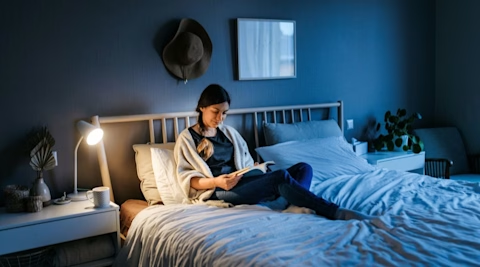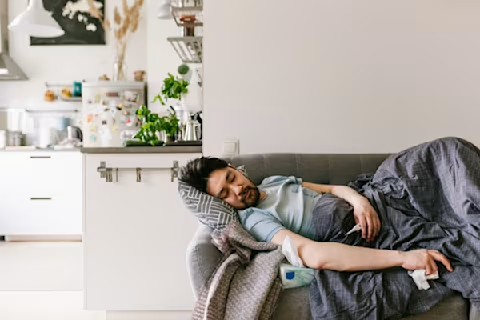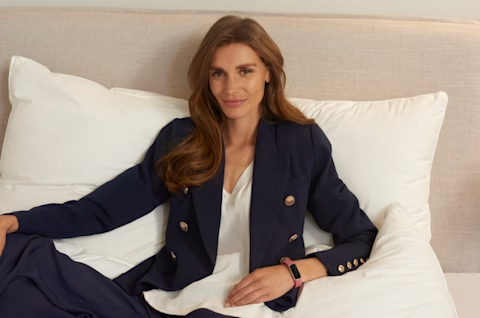Nap time: Snooze your way to career success
The right amount of sleep can have a huge impact on your work day

Australia’s leading sleep expert Olivia Arezzolo, opens in a new tab explains why sleep is crucial to a successful work life, and exactly how many hours you need to stay at your most productive.
Many factors impact how healthy, happy, and productive we feel at work. A balanced diet, regular exercise, and a supportive environment are all key, but perhaps the most crucial is a good nights sleep.
Too little sleep, or poor quality shut-eye, can have a detrimental affect on how we concentrate, problem-solve, and resolve conflicts. Moreover, our communication skills can dip, and our stress levels can increase.
Reduced sleep has also been linked to some serious health conditions, opens in a new tab, including heart disease and diabetes.
From knowing your sleep type to developing some healthy sleep habits, there are many ways to improve your health and performance while getting better rest.
What is your sleep type?
Sleep expert Olivia Arezzolo says one of the first things to know if you want to get better quality sleep is what type of sleeper are you?
“A type or a chronotype is a categorisation system for your circadian rhythm,” says Olivia, who outlines all the details in her book Bear, Lion, Wolf, opens in a new tab.
Your chronotype will dictate when you prefer to sleep and how much sleep you typically need to feel well. Studies show, opens in a new tab that there are three chronotypes – morning, evening and neither – and the main factor that differs between them is how much melatonin we produce. Melatonin is a naturally occurring hormone that responds to darkness. We know that certain types of light can block melatonin and make it hard for us to fall asleep.
“Typically, one chronotype can need up to two hours more sleep than the others.”
Knowing how much sleep your body type needs can help identify if you’re getting too little or too much and where you might need to tweak bed or waking times. Find out what sleep type you are., opens in a new tab
The link between sleep and success
When it comes to work, we know that substandard sleep can have a serious impact on how we think and perform.
“Beta amyloid, a neurotoxin that contributes to brain fog and memory loss, can increase by 30% after one night of insufficient sleep,” says Olivia. “The main area of the brain to suffer at the helm of sleep loss is the frontal lobe, which is responsible for decision-making, judgement, and planning. This is also why we struggle to think straight with too little sleep.”
Reduced sleep can also impact our mental health and how we respond to others, says Olivia.
The stress hormone cortisol can increase by 37% after one night of reduced sleep, making us feel anxious and wired. We are also more reactive, impulsive, and irritable, which can impact our relationships.
7 steps to a better night sleep
We all know from experience that we feel better, more energetic and alert after a good night’s sleep. But it’s often hard to attain.
“I recommend my signature bedtime routine to improve sleep – 100% of my private clients using it have seen improvements in their sleep in less than seven days,” says Olivia.
1. Wear blue light blocking glasses for two hours before bed. This can reduce nighttime wakings by 66%, as reported in a 2016 study., opens in a new tab
2. Take lavender capsules. A clinical trial, opens in a new tab found lavender improved sleep quality by 45%, and reduced anxiety by 59%.
3. Disconnect from technology at least 60 minutes before bed. One survey, opens in a new tab showed using a phone in the last hour before bed increases your likelihood of taking over an hour to fall asleep by 48%.
4. Have a shower. Going from a hot shower into a cooler room causes your core body temperature to drop, which is a cue for melatonin synthesis.
5. Have a magnesium-based sleep supplement. A clinical trial, opens in a new tab found magnesium could reduce anxiety by 31%.
6. Read a book. A study by the University of Sussex, opens in a new tab found reading could reduce stress by 68%.
7. Use an eye mask to protect you from blue light while you sleep.
Is a nap ever a good idea?
Some of us swear a short nap after lunch is the key to staying sharp throughout the day, while others say even a quick snooze leaves them feeling sluggish and more tired than ever.
Studies show, opens in a new tab that naps can increase creativity and alertness, strengthen memory, and improve performance – but there are some rules if you want to make it work, says Olivia.
“Use my perfect nap principle. Keep it short (less than 30 minutes); keep it dark (wear an eye mask); keep it early (no later than 3pm).”
For more sleep coaching tips contact Olivia today., opens in a new tab

How to treat the flu quickly

Everything you need to know about the 2025 flu vaccine

How improving your gut health can help support your immune system
70 per cent of our immune function is centred in the gut

In partnership with
Olivia Arezzolo
Introducing Olivia Arezzolo, Australia’s leading sleep expert. With 14 years professional and academic experience; she is the go-to guru for the Today Show, Studio 10 and Sunrise; contributor to Forbes, New.com.au, and Daily Mail; author of bestselling book Bear, Lion, Wolf; published in 11 languages in 8 countries. She has been a media spokesperson for global brands such as IKEA, Sealy Posturepedic, Samsung, Fitbit, AIA Insurance, Toyota and The Body Shop; and is living her mission to help others live their best lives, via the vehicle of sleep.